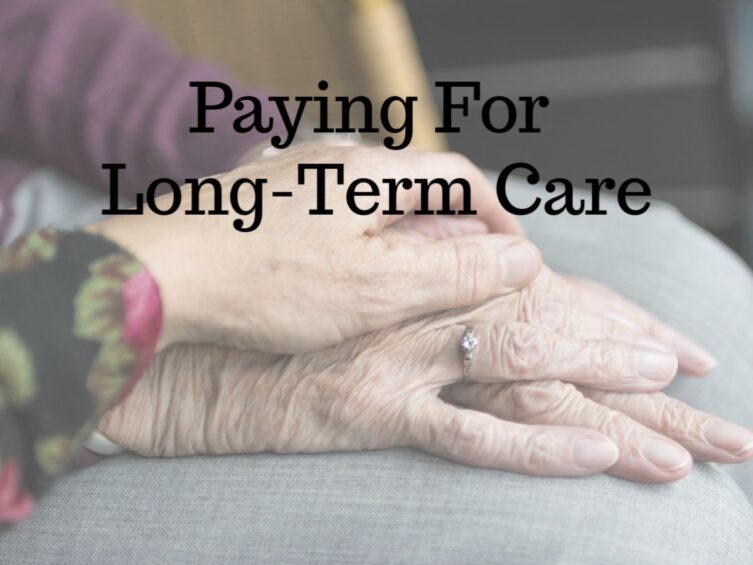Longevity and demand have made getting (and paying for) long-term care insurance increasingly difficult. But that doesn’t necessarily mean you should go without it.
Here’s how to analyze whether you really need long-term care (plus an inventive way to pay for it).
Long-term care costs an arm and a leg, no matter who is providing it. Which is why many turn to long-term care insurance policies for financial protection. Unfortunately, people soon discover that LTC insurance isn’t always the “easy solution” they hoped it would be.
Long-Term Care Used to Be Easier
A common question for those preparing for (or who have already reached) retirement is “Do I need to plan for long-term care? Should I keep my long-term care insurance policy?”
Years ago, it was easier and more affordable to plan for long-term care. But with the incredible advancements of science, medicine, and overall healthcare within the last few years, most of us are living a lot longer.
In fact, according to the Society of Actuaries, there is now a greater than 50% chance that one spouse will live to age 92, and a greater than 25% chance that one will live to age 97. Numbers like these were simply unheard-of in the past.
Longer lifespans mean that the industry has seen higher premiums on new policies, double-digit premium increases on existing policies, and fewer policies being written. In fact, many insurers have stopped issuing new policies or gotten out of the business altogether.
As a result, people looking for long-term care insurance have found it difficult to find and pay for their policies, unless they are in just-about perfect health.
Experience has proven that those with a long-term care plan and/or policy have the greatest flexibility and quality of care when they need it. However, increased costs and dwindling availability make it a challenge to incorporate (or even keep) long-term care as part of your retirement plan.
Is Long-Term Care Insurance Worth It?
Here are three questions that will help you begin to analyze your long-term care needs for your retirement plan. Even if you are guessing at some of your answers, they can help you get a better understanding of your needs.
1. What is your (and your family’s) health history?
If you are already dealing with serious and expensive health concerns, it would be a mistake not to plan for your long-term care. On the other hand, the same holds true even if you have a history of family members living to be 107. It might cost less to implement due to your excellent health, yet your LTC insurance will cost more over time due to longevity.
2. Do we have the assets and/or income to self-insure?
Self-insuring your care can be a viable option, but it will also be the most expensive one, and will present challenges for married couples. Namely, you need to consider whether you have enough to cover the long-term care for BOTH spouses. Otherwise, you risk running out of funds for one spouse’s care and having nothing left to deal with even the basic cost of living for the surviving spouse.
3. Are you single or widowed?
The older you get, the more difficult it will be to rely on your friends and family members for help. Remember, they’re getting older, too. And your family members may live too far away or be too preoccupied with their personal lives to provide consistent care. Having a long-term care plan can give you the control you deserve for your care when you need it most—without having to “bother” anyone.
Paying For Long-Term Care
The first option is to self-fund your care. This isn’t the best choice for everyone, as it’s very expensive and relies on cash reserves that most people might not have. In a pinch, you may be able to secure extra cash through a reverse mortgage or home equity loan, but this process takes time and can also lead to your beneficiary losing the asset at your death.
For those with few assets and low income, Medicaid may be the only option you have. You will be limited in your options, however. Some types of care or facilities may not be available to you.
If you are a veteran who served on active duty in war, you may be entitled to Aid and Attendance benefits. This program is often overlooked but can be extremely helpful if you qualify.
The best option, in my opinion, is to get a long-term care insurance policy. While traditional long-term care insurance can be expensive and difficult to find, alternatives can be found through a variety of different “hybrid” plans.
A hybrid LTC policy may be either:
- A combination of life insurance and long-term care insurance – This method is an “either/or” approach. If you end up not needing the money for long-term care, it will become a death benefit to your beneficiaries when you die.
- Fixed annuities with long-term care riders – This method will provide additional income of 2-3 times more if you need any time of long-term care.
These plans do not usually cover as much as a traditional policy, but in my opinion, can offer greater flexibility while covering a good percentage of your care.
Conclusion
Long-term care is a crucial part of any successful retirement plan.
Regardless of your feelings about it, there are even greater challenges ahead for aging retirees. It will always make more sense to work with your financial advisor through these issues and objectives, instead of leaving it to a family member in the flurry of a health emergency.

